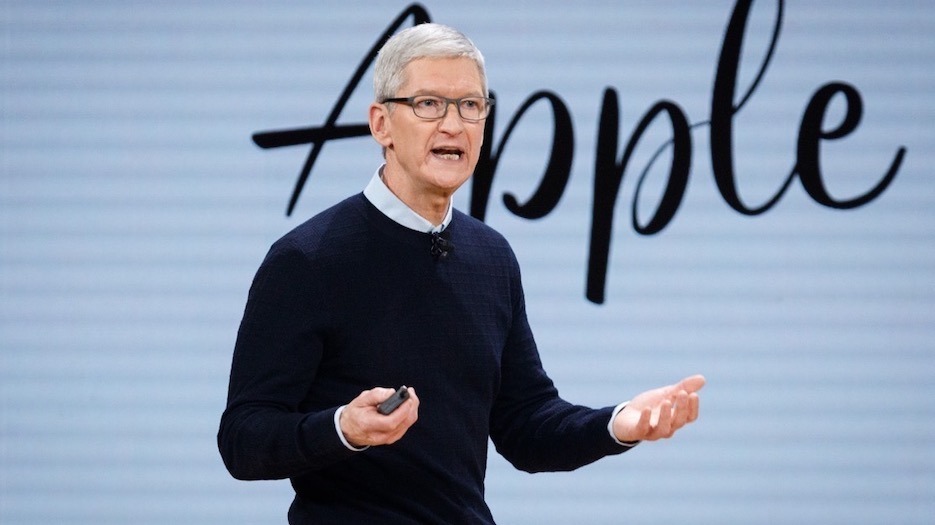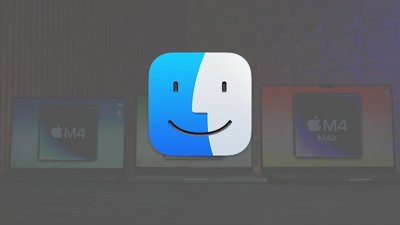Apple CEO Tim Cook participated in an interview as part of The Atlantic Festival on Monday, where he discussed a range of topics from climate change to remote work and the company's antitrust troubles.
Speaking with The Atlantic Editor in Chief Jeffrey Goldberg, Cook kicked off the remote interview by touching on environmental responsibility, a topic consistently lauded by Apple as a guiding principle. Specifically, he was asked whether recent catastrophic events, like the California wildfires, have the power to change opinions on climate change.
"I think the sum total of all of these — the wildfires in the west that's essentially burning millions of acres in the west, the hurricanes in the south in my hometown, the flooding that's taken place in the northeast and the mid-Atlantic region — all of these together, I do believe, will convince the people that are not currently convinced about climate change" Cook said.
He went on to note Apple's endeavors in the space, from transitioning corporate and retail stores to 100% renewable energy in 2018 to a new commitment to be carbon neutral across supply chain, products and services by 2030.
The conversation shifted to President Trump, a staunch opponent of climate science. When asked whether he has been able to change Trump's mind on key issues like the environment, Cook demurred. Those talks are "private conversations," the Apple chief said.
On the whole, however, Cook reiterated the importance of engaging with elected government officials who hold opposing views.
Turning to the coronavirus pandemic, Cook said executives "turned the company upside down" to find ways to contribute to the ongoing fight. April's donation of 30 million face masks and face shields was offered as an example of Apple's ability to design effective products and leverage a vast supply chain on short notice.
In May, the tech giant awarded $10 million from its Advanced Manufacturing Fund, as well as production ramp assistance, to test kit maker COPAN Diagnostics. Apple News has also been combating "fake news" with a section dedicated to COVID-19 coverage.
The conversation turned to remote work. Apple currently has about 10% to 15% of its team at work at Apple Park, with Cook visiting the campus at routine intervals during the week. A "vast majority" of employees are still working remotely, and while there are advantages to the temporary system, a physical presence at the office is irreplaceable, Cook said.
"In all candor, it's not like being together physically, and so I can't wait for everybody to be able to come back into the office. I don't believe that we'll return to the way we were, because we found that there are some things that actually work really well virtually," Cook said. "But things like creativity and the serendipity that you talk about, these things, you depend on people kind of running into each other over the course of a day. We have designed our entire office such that there are common areas where people congregate and talk about different things, and you can't schedule those things."
On antitrust, Goldberg asked whether Cook was more "bothered" by being called to testify in front of Congress about antitrust issues or the fact that he was lumped in alongside the likes of Facebook CEO Mark Zuckerberg.
"I think that big companies deserve scrutiny. And I think that's not only fair but important for the system that we have in America," Cook said. "And so I have no issue at all in Apple being put underneath the microscope, and people looking and probing. And my hope is, Jeffrey, is that as people heard our story, and as they continue to hear our story, that it will become as apparent to them as it is to us that we have no monopoly."
Reiterating statements made in front of the U.S. House Antitrust Subcommittee in July, Cook said Apple operates in "fiercely competitive" fields like smartphones and tablets, where there are "basically street fights" for marketshare. Apple's strategy to make the best products available almost disqualifies the company from becoming a monopoly.
"It's very rare, almost impossible for the best to become the most as well," Cook said. "Somebody will choose a commodity product and there's enough people that buy the commodity product that it will have more share. That's true in all of the different fields we're in."
Cook went on to talk about Apple's stance on human rights, privacy, China and other well-trod issues.
 AppleInsider Staff
AppleInsider Staff








 Malcolm Owen
Malcolm Owen

 Amber Neely
Amber Neely
 Christine McKee
Christine McKee


 William Gallagher
William Gallagher
 Chip Loder
Chip Loder


-m.jpg)





